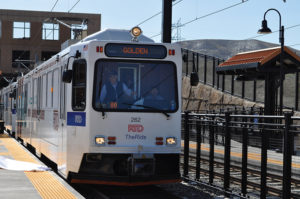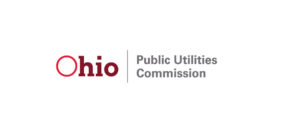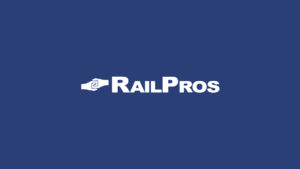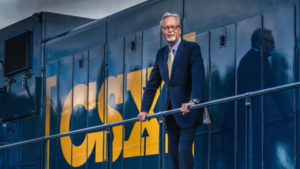Yakima, Wash., railroad underpass bids pass muster
Written by jroodThe city of Yakima, Wash., expects to break ground on the railroad underpass project next March, thanks to some surprisingly low bids from contractors and political support from local members of Congress who hope to bring back more money from Washington, D.C. the Yakima Herald-Republic reports.
City officials received
the first round bids for initial construction, and so far the numbers look
good. City Manager Dick Zais said the low bid of nearly $11.2 million for the
first of two street tunnels under the BNSF came in $3 million under the city’s
estimate. Zais, whose determination to build tunnels under the train tracks on Lincoln
Avenue and Martin Luther King Jr. Boulevard has earned scorn from some
quarters, was visibly pleased.
"It’s a good day,
good day," said Zais, who clearly wasn’t describing the gloomy, slushy
weather outside City Hall.
The apparent low bidder
was Apollo Inc., a general contracting firm based in Kennewick that has done
other, smaller projects for the city. Knobel’s Electric of Yakima is signed on
as a subcontractor. If Apollo’s bid is approved, it will construct the Lincoln
Avenue underpass. The bid and construction for the second underpass, on MLK
Boulevard, is expected next year.
All seven bids were under
the estimate for the first tunnel, ranging from Apollo’s low of $11.2 million
to a high of $13.9 million. Two others were within range of Apollo’s bid. The
final awarding of the bid is not expected for at least a month.
"That really kind of
validates" the Apollo bid, City Engineer Doug Mayo said of other low bids.
"You kind of get nervous when somebody’s way down below everybody
else."
Michael Morales, deputy
director of the city Community and Economic Development Department, said a bid
that comes in 20 percent below the engineering estimate is not surprising in
the current economy. Contractors are hungry for work.
"Given what we’re
hearing from other cities, this isn’t as alarming as it would have been a
couple years ago," he said.
City officials were
hoping for a big break because they need one — or two. The underpass project,
pegged at $42 million, will be one of the biggest public works projects in
Yakima history. Officially known as the Railroad Grade Separation, the goal is
to keep vehicle traffic flowing on Lincoln and MLK by routing the streets under
the train tracks. Zais has predicted that railroad freight traffic will
increase in coming decades.
City officials have put
together a mix of federal and state grants to pay for the underpasses, along
with more modest contributions from the city and BNSF. But until recently,
Yakima was still about $8 million short.
Now, along with a
promised congressional earmark of $2 million by Sen. Patty Murray, D-Wash., and
Rep. Doc Hastings, R-Pasco, the bid means the city is now just $3 million off
full funding.
In addition to
construction of the street tunnels, the total project cost includes
pre-construction costs, such as engineering, design, right-of-way purchasing
and utility relocation. There are also contingency funds for unexpected
expenses.
The street tunnels have
been talked about since at least the early 1970s and are said to be the largest
public works project — some say boondoggle — in the city’s history. Included
in the project is a plan to dress up the underpasses with dozens of brightly
lit glass panels designed to mimic apple bins in both shape and scale. The
$700,000 cost for the art represents 1.7 percent of the overall budget. The art
is not required by law but reflects the opinion of civic leaders, who have said
a public works project of this scope needs some color.





